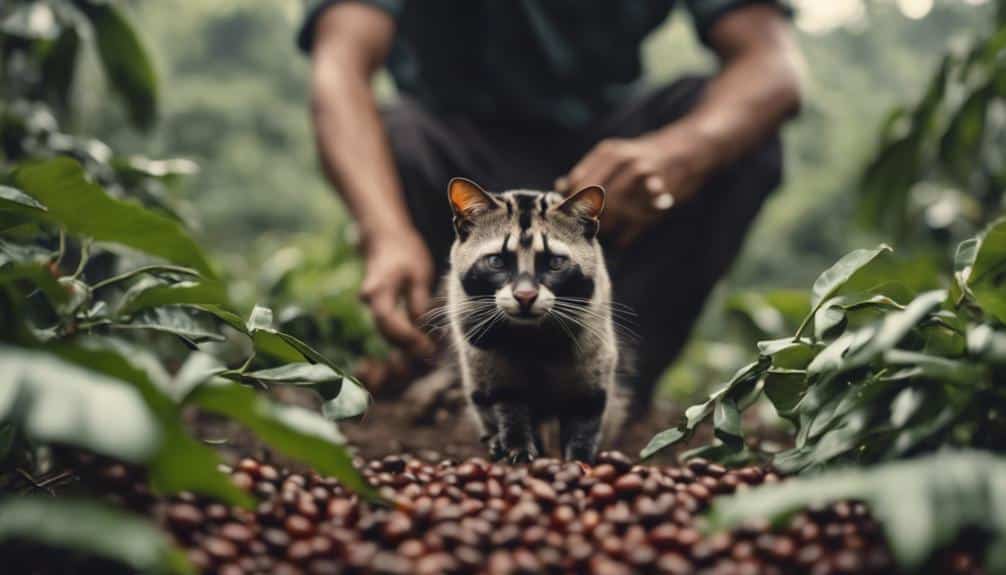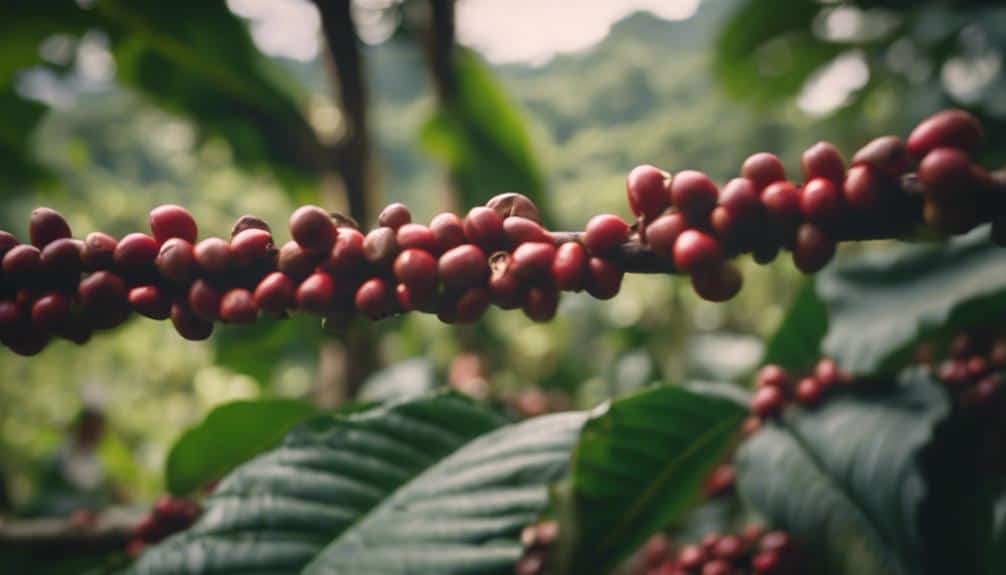Discover 3 Surprising Facts About Luwak Coffee

Exploring the mysteries behind Luwak coffee is a journey into the world of exquisite brews that defy the ordinary. Did you know that the civets' unique role in the coffee's creation adds a surprising twist to its flavor profile? Or that its limited production contributes to its mystique and high price tag? These intriguing revelations about Luwak coffee challenge our perceptions of what makes a truly exceptional cup of joe.
Unique Fermentation Process
In the world of coffee production, an intriguing aspect that sets Luwak coffee apart is its unique fermentation process that takes place inside the stomach of civets.
This process involves the civets ingesting ripe coffee cherries, with the beans undergoing a partial digestion in the civet's digestive system. The digestive enzymes in the civet's stomach play an essential role in breaking down proteins within the coffee beans.
As a result, the partially digested coffee beans undergo changes that lead to a smoother taste and aroma in the brewed coffee. This fermentation process also helps in reducing the bitterness and acidity typically found in coffee, resulting in a more refined and mellow flavor profile.
The interaction between the beans and the civet's digestive enzymes is what contributes to the unique characteristics of Luwak coffee, making it a sought-after gourmet coffee known for its distinctive taste and exclusivity in the market.
Exotic Flavor Profile
Venturing into the domain of Luwak coffee's allure, the Exotic Flavor Profile tantalizes the senses with its intricate blend of bitter and caramel notes, setting it apart as a truly unique gourmet experience. This Indonesian specialty coffee, made from wild palm civets, undergoes a fascinating journey. The civets consume ripe coffee cherries, and the beans ferment in the animal's digestive system, enhancing the coffee's flavors. Despite its origins in cat poop, this rare coffee emerges with a rich taste that coffee enthusiasts find irresistible.
To further elaborate on the exotic flavors of Luwak coffee, let's explore a comparison table:
| Aspect | Description |
|---|---|
| Taste Profile | Bitter and caramel notes |
| Aroma | Musty and heavy body |
| Production Cost | Around $75 per quarter pound |
| Availability | Limited annual crop |
| Brewing Process | Requires strict brewing for quality |
Limited Production and Availability

Limited in its annual production and exclusive in availability, Kopi Luwak captivates coffee enthusiasts with its rarity and unique production process.
This coveted coffee, known as the world's most expensive coffee, is made from beans that undergo a special journey. Wild civets, specifically the Asian palm civet, pick the ripest coffee cherries, digest the fruit, and excrete the beans. These beans are then collected by native farmers, washed thoroughly, dried, and roasted to perfection.
The Indonesian term for coffee, Kopi, signifies its origin, while the term 'Luwak' refers to the palm civet. The scarcity of Kopi Luwak, with only about 22 thousand pounds produced annually, adds to its allure and high price tag.
Due to its limited availability, this coffee is typically found in select locations and specialty coffee retailers. For those seeking this rare coffee experience, online platforms offer options to purchase Kopi Luwak, often in convenient capsule form that helps preserve its exceptional aroma and quality.
Conclusion
To sum up, Luwak coffee offers a one-of-a-kind experience with its unique fermentation process, exotic flavor profile, and limited production.
The smooth taste, bitter and caramel notes, musty aroma, and heavy body make it a luxurious treat for coffee enthusiasts.
With only 22 thousand pounds produced annually, this rare and expensive coffee is truly a special indulgence worth savoring.





